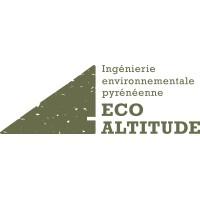
Overexploitation of resources
The anthropogenic exploitation of wildlife has occurred throughout human history, leading to biodiversity loss and extinctions; however, the recent rate of loss has accelerated sharply. The most overexploited species include marine fish, invertebrates, trees, tropical vertebrates hunted for bushmeat, and species harvested for the medicinal and pet trade.
This category only includes biotic resources, ie ressources from living organisms.
1. Drivers of biodiversity loss
Overexploitation of resources

ECO-ALTITUDE
[Automatic translation follows] Pyrenean environmental engineering Pyrenean environmental engineering: - Ecological engineering to restore Pyrenean vegetation (including local seeds) - Consulting engineering in sustainable tourism - AMO Environment / Sustainable development - CSR / Ecological transition Environment, Ecological engineering, Ecological transition, Environmental engineering, Environmental management, Agroecology, Flora, Local plants, Biodiversity, … [see more]

ECOCEAN
[Automatic translation follows] Innovation in the service of aquatic biodiversity Ecocean innovates, repopulates and restores aquatic ecosystems, raises awareness of the issues of their preservation and protection, thus positioning itself as a major driver of change in the rehabilitation of these fragile environments. ECOLOGICAL RESTORATION, FISHING & REARING DEVICES, DIAGNOSTIC … [see more]

Sustainable Timber Tasmania
Sustainably managing the forest estate, sustainably supplying timber and sustainably growing our business. Sustainable Timber Tasmania is a Tasmanian Government Business Enterprise responsible under State legislation for: - Sustainably managing approximately 800,000 hectares of public production forest (Permanent Timber Production Zone land) - Undertaking forest operations for the production and … [see more]
